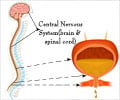Information about Tolterodine
Generic Name : TolterodineUp-to-date prescription details regarding Tolterodine are provided here.
Pronunciation : tol-TER-oh-deen
Learn the correct pronunciation of the Tolterodine, understand it's uses, recommended dosages, its indications, how to take, when to take, when not to take, side effects, special precautions, warnings and its and its storage instructions.You will also find a list of the medication's International and Indian brand or trade names, as well as its pricing information. For verification of the information presented on this page or for additional clarifications, it's advisable to consult your doctor.
ICD Code : Y51.3 Therapeutic Classification : Anticholinergics
Trade Names/Brand Names of Tolterodine
India :
Uftol |
Terol LA 2 Capsule ER |
Torq-SR (2mg) |
Roliten OD |
Terol-LA (2mg) |
Roliten OD (4 mg) |
Torq SR (2 mg) |
Roliten (1 mg) |
Terol-LA (2mg) Capsule ER |
Torq SR (4 mg)
International :
Detrol
Why is Tolterodine Prescribed? (Indications)
Tolterodine belongs to a class of medicines known as antimuscarinics. It is prescribed for the treatment of overactive bladder with symptoms of urinary incontinence, urgency and frequency. It acts by relaxing the bladder muscles. It has also been tried for the treatment of bedwetting caused by overactive bladder in children who are above the age of 5 years.When should Tolterodine not be taken? (Contraindications)
Tolterodine is contraindicated in patients who are allergic to the drug, with urinary retention, functional or structural gastrointestinal problems that reduce motility, increased eye pressure (glaucoma)and severe liver disease.What is the dosage of Tolterodine?
Adult- The recommended dose is 4 mg once daily or 2 mg twice daily orally.How should Tolterodine be taken?
It comes as a tablet or as an extended release capsule to be taken by mouth, with liquids.What are the warnings and precautions for Tolterodine?
•Caution should be exercised in patients with history of kidney or liver disease, severe obstruction of stomach/intestine such as pyloric narrowing, enlarged prostate, heart problems, elderly, children, during pregnancy and breastfeeding.Patients may be at increased risk of QT prolongation, an abnormality in the electrical activity of the heart; if it so consult with your doctor.
Avoid driving a car or operating machinery while taking this medication as it may cause dizziness or drowsiness.
Avoid alcohol consumption as it may worsen the side effects of the drug.
What are the side effects of Tolterodine?
General- Headache, dry mouth, fatigue, rash and severe allergic reactions.Central Nervous System- Dizziness, confusion, disorientation, memory loss, hallucinations, drowsiness and anxiety.
Heart- Fast heart rate, chest pain and fluid accumulation.
Gastrointestinal- Constipation, abdominal pain, and indigestion.
Eye- Dry eyes and blurred vision.
Respiratory- Inflammation of sinuses, bronchi and other parts of the respiratory tracts.
Genitourinary- Painful urination.
What are the other precautions for Tolterodine?
Avoid exposure to sunlight while on the drug since it inhibits sweating and heatstroke may occur.What are the Drug Interactions of Tolterodine?
Tolterodine should be avoided with:Anti-arrhythmic drugs like amiodarone and quinidine which are used in the treatment of arrhythmias (abnormal heart rhythms) as it would result in increased chances of abnormal heartbeat.
Antibiotics like erythromycin and clarithromycin, azole antifungals like itraconazole and ketoconazole, the antiviral drug ritonavir, antidepressant fluoxetine and anticholinergics like scopolamine and atropine, since they could increase the side effects of the drug.











